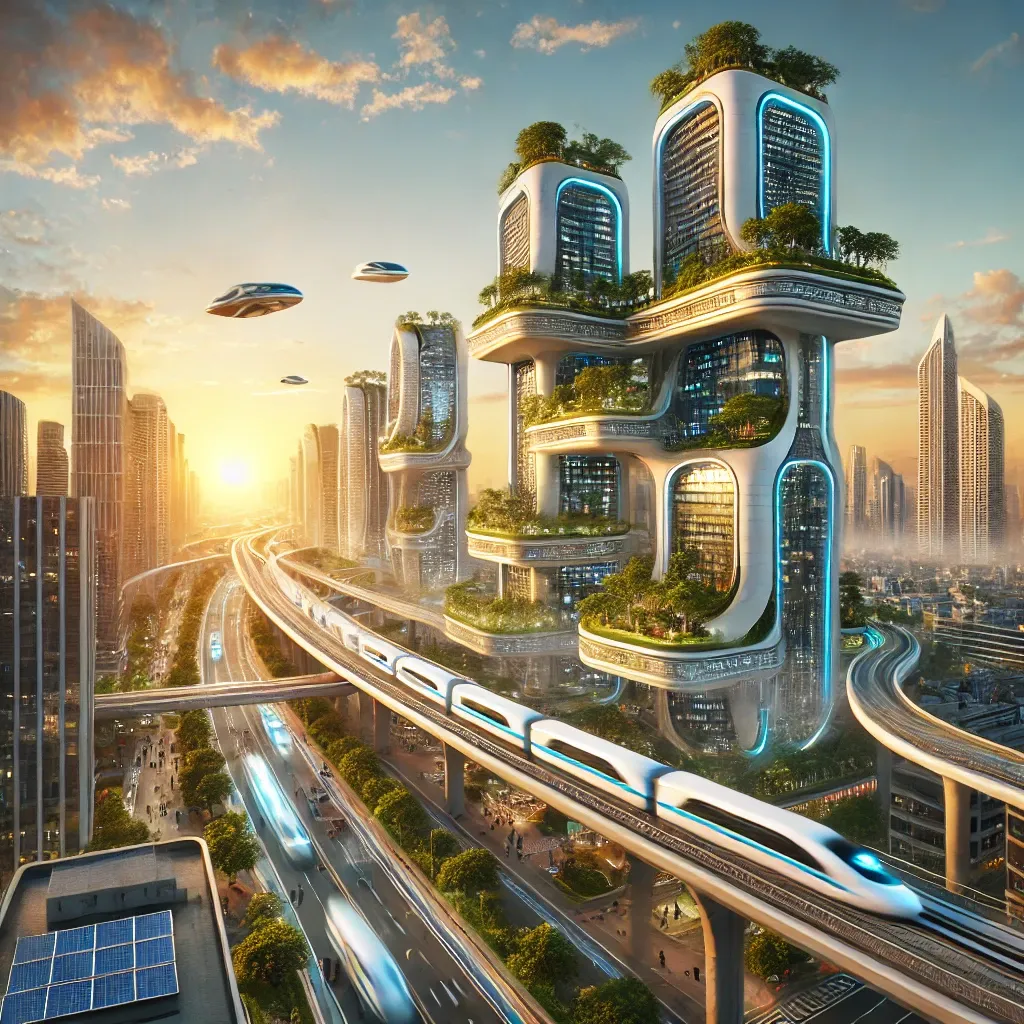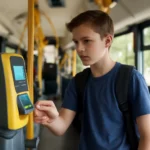What will the future hold? Discover the innovations shaping tomorrow’s cities, technologies, and daily life. From sustainable urban planning to cutting-edge electronics, the future unfolds in unexpected ways—are you ready to embrace it?
Future City
The cities of the future will not only look different, but they will also operate more intelligently than anything we know today. Urban areas will transform to accommodate growing populations with efficient infrastructure, ensuring sustainability and livability. The next generation of cities will integrate eco-friendly initiatives, where green spaces and technology work in tandem. Elevated roads, vertical gardens, and self-sustaining energy grids will characterize urban landscapes. Everything, from transportation to housing, will revolve around smart technologies.
- High-speed public transport systems powered by clean energy will dominate mobility.
- Smart homes with integrated AI will reduce energy consumption and promote comfort.
- Citizens will rely on augmented reality for navigating urban spaces and services.
- Streets will feature advanced waste management systems, minimizing landfill usage.
- Floating solar arrays and urban wind turbines will ensure energy self-sufficiency.
These cities will foster vibrant, diverse communities, encouraging people to engage and connect in ways that improve mental well-being. Future cities won’t just aim to function better—they will aim to inspire and nurture.
Future Electronics
Electronics will evolve beyond the devices we currently depend on, becoming a seamless extension of everyday life. The future of electronics will center on portability, efficiency, and integration. As innovations emerge, the distinction between hardware and software will blur, creating unified ecosystems. Devices will work autonomously and learn from users to provide better services without manual input. Wearables, home devices, and transport systems will synchronize perfectly.
- Augmented reality glasses will replace smartphones as the primary digital interface.
- Brain-computer interfaces will allow for seamless communication with machines.
- Biodegradable electronics will reduce e-waste and promote environmental sustainability.
- Robotics will enter households and workplaces, making tasks safer and faster.
- Quantum computing will revolutionize problem-solving, accelerating research across fields.
In addition, the shift toward flexible, energy-efficient circuits will make gadgets lighter and more robust. Innovation will focus on sustainability, ensuring the longevity and recyclability of devices. Future electronics will reshape industries and change our relationship with technology.
Future Work
The nature of work will also undergo radical transformation as automation and AI continue to develop. Jobs will adapt to new demands, emphasizing creativity, adaptability, and human interaction over routine tasks. Many traditional roles will disappear, but new ones will emerge in their place, requiring skills previously not associated with employment. The workplace itself will shift to accommodate a more fluid, dynamic environment.
- Remote work will become standard, with virtual offices replacing physical ones.
- AI-powered tools will handle repetitive tasks, allowing humans to focus on strategic thinking.
- Lifelong learning will become essential, with online platforms offering on-demand education.
- Gig economies will flourish, providing opportunities for entrepreneurship and flexible work.
- Well-being initiatives will gain prominence, focusing on mental health and work-life balance.
Collaborative technologies will make global cooperation easier, while personal growth will become a central aspect of career development. The future of work will prioritize value creation over time spent, encouraging meaningful contributions rather than hours clocked.
Conclusion
The future is not an abstract concept—it’s already taking shape today. Cities will become smarter and greener, electronics more advanced and sustainable, and work more meaningful and fulfilling. While challenges will arise, they present opportunities to rethink how we live, work, and interact with the world. As Albert Einstein once said, “The future belongs to those who believe in the beauty of their dreams.” With thoughtful planning, innovation, and collaboration, the future offers endless possibilities for those ready to embrace it.






